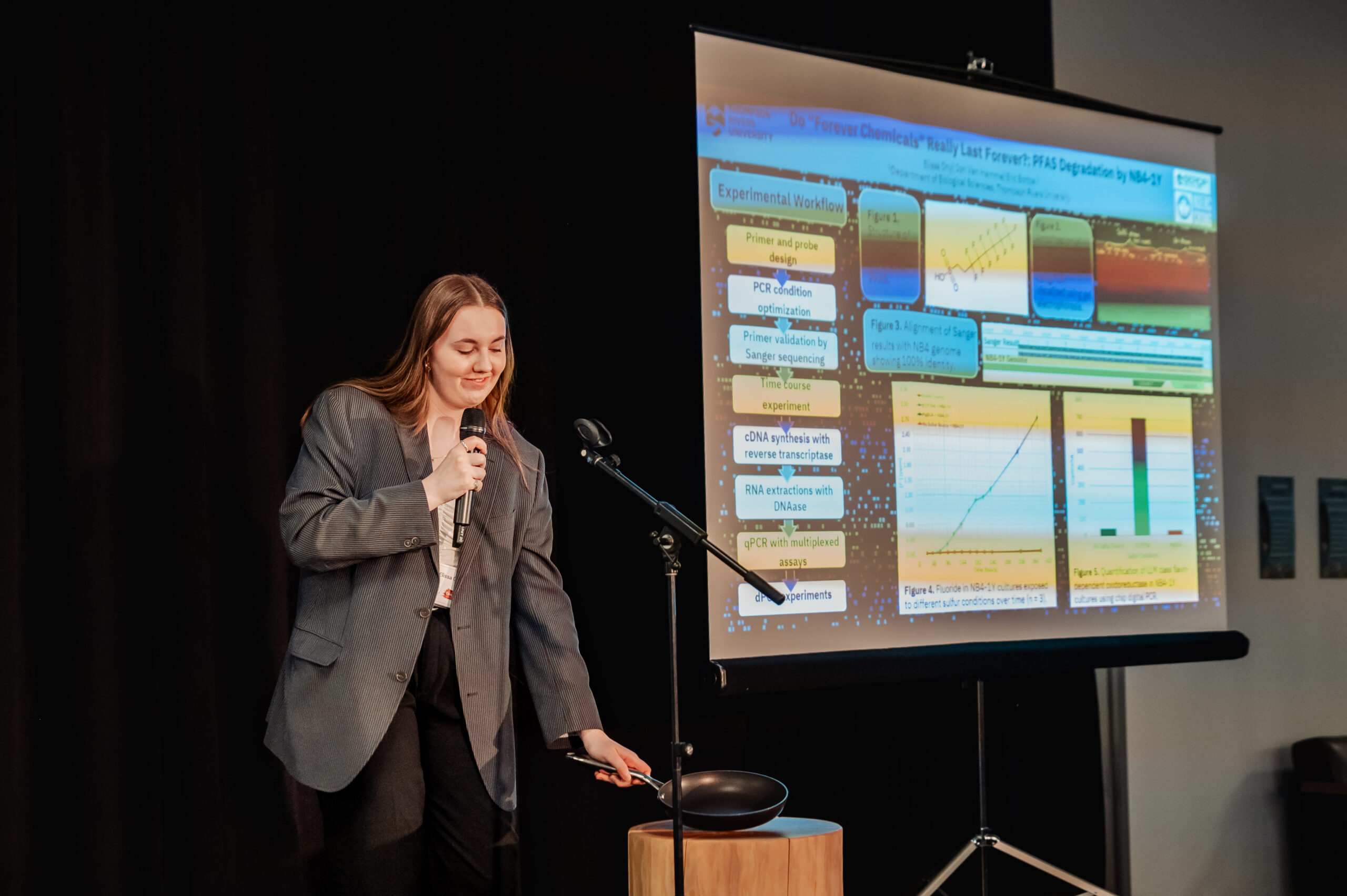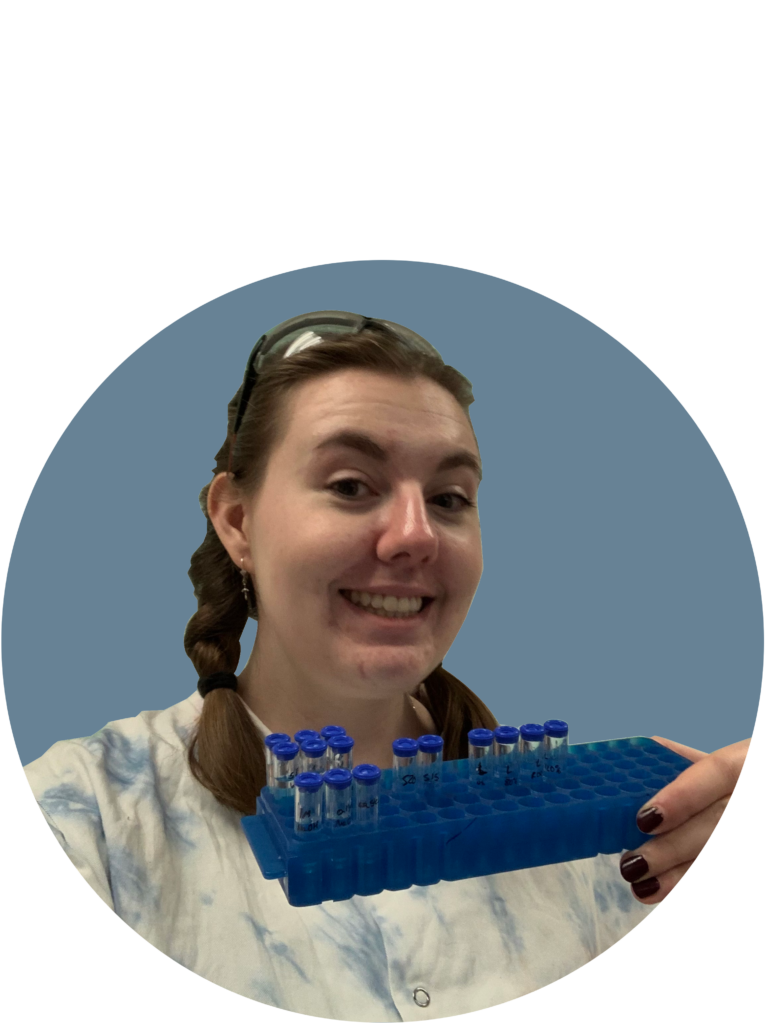
RESL 1500: How Research Shaped Me
When I pause to reflect on my undergraduate research journey, I realize it is difficult to describe in words how profoundly my experience has shaped me. Nevertheless, that is what I will attempt to do here. When I began my Bachelor of Science degree at Thompson Rivers University (TRU), I had no clear sense of my future career path, or even what major I would pursue. My perceptions made research feel distant and reserved for more experienced academics. However, once I embraced undergraduate research, my perspectives shifted. I had discovered a passion that not only clarified my academic direction, but also helped me grow professionally, refine my career goals, and connect meaningfully to local and national research communities.
At the beginning of my post secondary education at TRU, I lacked a concrete plan for my professional future. What I did know was that I wanted to make a meaningful impact on the environment and human health. Pursuing science felt like the most promising path to achieve those goals. However, research often felt out of reach and reserved for master’s or PhD students, something I might pursue when I was more experienced. Therefore, when Dr. Eric Bottos reached out to me about working in his lab in my second semester of first year, undergraduate research had not even crossed my mind. After meeting with Dr. Bottos, I was energized by the possibility of accumulating hands-on experience so early in my academic career. It offered a chance to explore whether research was something I genuinely wanted to pursue. Unbeknownst to me, this one meeting would ignite a lasting passion for research and lead to over three years of collaboration with Dr. Eric Bottos and Dr. Jonathan Van Hamme.
My perspective on research shifted dramatically during my first lab experience as a research assistant for Dr. Eric Bottos and Dr. Jonathan Van Hamme in the summer of 2023. Initially, I assumed the role would involve mostly menial tasks such as cleaning equipment or assisting senior students. To my surprise, I was given the opportunity to lead an independent project, which ultimately resulted in my first publication on the National Centre for Biotechnology Information database. I found the curiosity driven nature of the scientific method exhilarating, and the process of solving complex problems deeply rewarding. That first experience solidified my desire to pursue research further, potentially as a future career. I continued working in the Van Hamme lab, completing two NSERC Undergraduate Student Research Awards and a directed study project. Throughout my work in the lab, I have grown confidence in myself and my skills in a way that promotes motivated independent research. I have grown to love the work I do so much that I am inspired to help others find their way to research like I did.
Being deeply invested in undergraduate research has inspired me to help others explore whether research could be a meaningful part of their academic journey. This passion has led to my extensive involvement in outreach initiatives, including Genome BC’s Geneskool summer program, which introduces high school students to scientific instruments and techniques typically encountered later in university. I have also engaged, in a mentorship capacity, with programs like Thompson Rivers University’s Science Trajectory Ambassador and Mentorship Program (STAMP) which strives to support first year science students transition to university life. Additionally, I have been involved in the Research Ambassador and Research Coach programs at TRU, which focus on motivating students to engage in undergraduate research. These experiences have not only helped me grow in confidence and leadership, but they have allowed me to support students who are beginning to discover the possibilities research can offer, like I was three years ago.
One of the most valuable lessons I have learned through research is that the lab work itself is only half the job. The other half lies in effectively communicating your findings by making them clear, approachable, and engaging. I felt I did not fully grasp the extent of my work until I attempted to condense years of research into a concise, comprehensive presentation. Sharing my findings at both local and national conferences, to audiences of experts and non-specialists, taught me the importance of ensuring scientific information is accessible to avoid misinterpretations of data and scientific conclusions.
Over the past few years, my research has focused on the environmental impact and breakdown of perfluoroalkyl and polyfluoroalkyl substances (PFAS) by microbes. This topic has piqued interest in scientific communities around the world as the threat of climate change looms larger. Entering university, I knew I wanted to contribute meaningfully to environmental and human health. Therefore, I am proud that my undergraduate research will add to the rapidly expanding body of knowledge on PFAS degradation, and I’ve realized even early career scientific contributions can be significant.
Undergraduate research has shaped many aspects of my life, especially my future aspirations. When I first arrived at TRU, my path was uncertain. However, early exposure to PFAS research and advanced scientific instrumentation has opened doors and steered my ambition towards graduate study. I am excited to pursue a master’s degree in biotechnology, possibly abroad, as the next step toward a PhD and a career as a professional research scientist in the environmental or health sectors.
Reflecting on my research journey, I am proud of how far I have come professionally, and shocked by how wholly research has impacted my personal growth. What once felt distant and reserved for others has become the foundation of my identity as a scientist and mentor. I know my skills will evolve, my questions will deepen, and my ambitions will grow as I continue pursuing research in graduate school. Despite beginning this journey uncertain and inexperienced, I continue it with passion, purpose, and the knowledge that the most meaningful work lies ahead.
